On women participation in free culture communities in Tamilnadu, India
Free culture communities which rally around the ideals of freedom of knowledge and creative commons,all have one litmus test - What's the ratio of men and women participating in them?
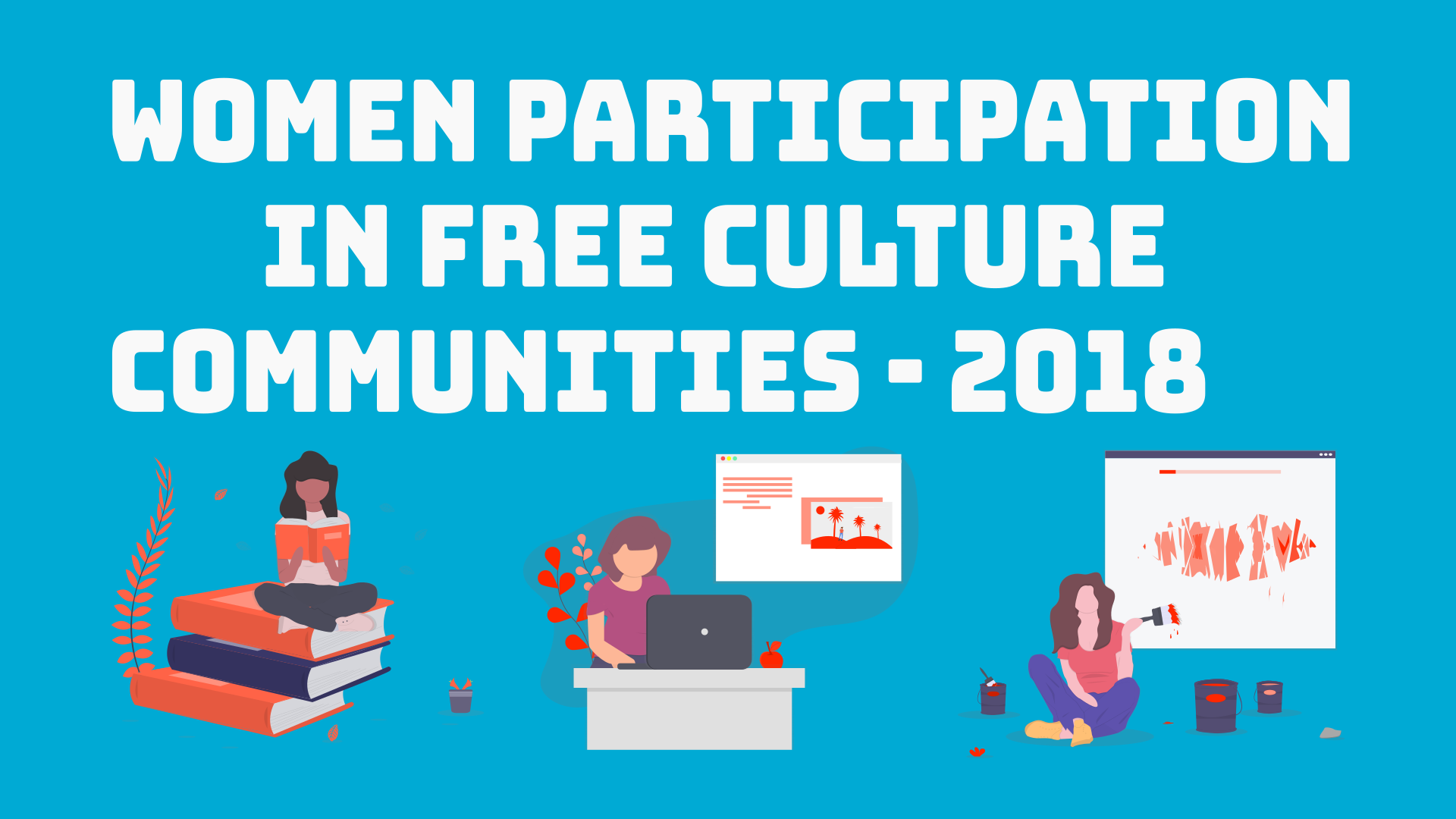
The camp and its speakers
Free culture communities which rally around the ideals of freedom of knowledge, creative commons, open source, transparency, privacy all have one litmus test - What's the ratio of men and women participating in them? This is where they get to their proactive action in challenging the social fabric that they work in. We had the chance to attend Free Software Foundation Tamilnadu (FSFTN)'s Tech Synergy Camp 2k18 which had a discussion on the state of women participation in science, technology and FSFTN.
The camp had a positive gender ratio of eleven women and five men undergraduates. The camp itself had two women speakers - Nithya & Srravya. Nithya has written numerous tutorials and books in Tamil on broad range of topics including SQL, HTML, Big Data, Machine Learning for Kaniyam. She hosted the sessions on Python & Data Science at this tech camp.
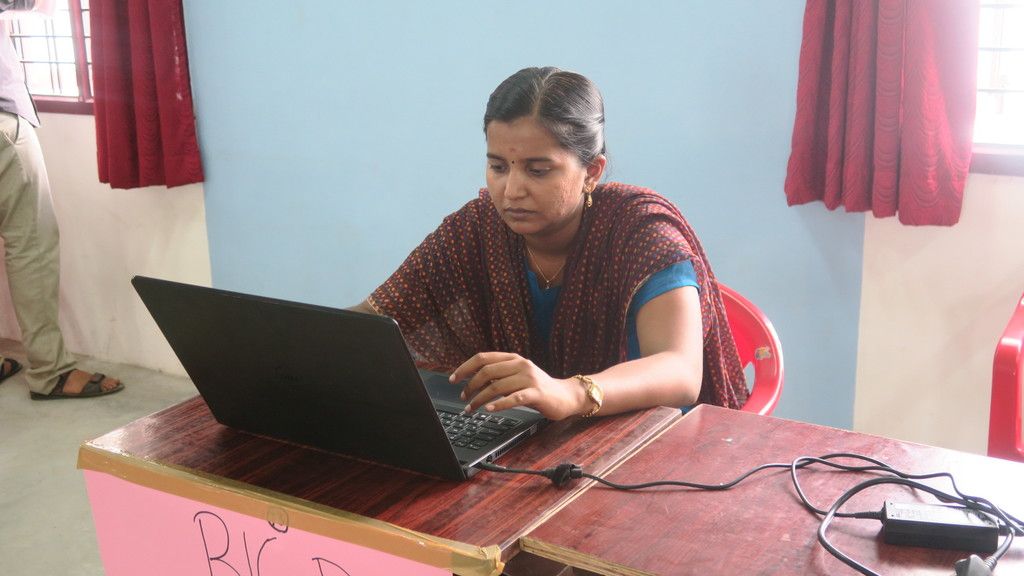
Srravya helped create SWIFT, FSFTN's Special Interest Group (SIG) for women participation called SWIFT (Swift Women In Free Technologies).
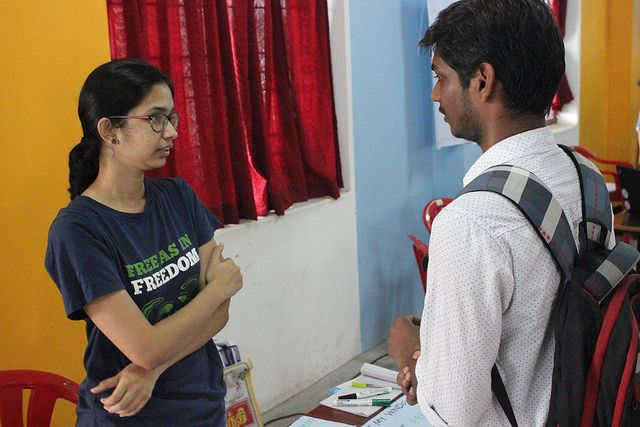
Its usual at FSFTN camps to have significant number of women volunteers, atleast in the camps we have attended so far. This time we had the fortune of having a close knit participant group this facilitated the organizing team to deliver their best.
The OpenStreetMap session felt the impact of such participation. Surprisingly an interlude have been organized by the FSFTN on gender imbalance in technology which in turn affects the women participation in Arts, Science, Engineering & other professional studies. Even though such discussions have always emerged and discussed to several depths at several occasions, this time we had the opportunity to include new people into the conversation.
Need for women participation
Srravya laid out the stage by initiating the discussion on need for increased and active women participation in socio-technological domains - by portraying the example of how digital maps can be skewed in favour of one gender when the people who contribute to it are mostly men. She also gave the example of voice recognition failing to identify women voices simply because there weren't enough women testers, during the implementation phases of Apple's Siri. She mentioned that even though there are numerous diverse women personalities (remembered Rosalind Franklin, Emma Goldman, Alexandra Elbakyan, my mother and sister....), the most articles on Wikipedia on women are about pornography actresses and modeling, movie actresses next to about nurses which shows a sexist perspective against women.

She also elucidated proof (1,2,3) where women participation in OSM mapping in Philippines glared with fundamental difference from men participation and contribution. This opened the perspective of how inclusive participation from women makes participative community platforms egalitarian, especially in science and technology.
To counter this, she pointed out few initiatives that try to proactively include women and other participative minorities like Outreachy, DjangoGirls, RailsGirls, WikiWomen.

There are many initiatives to increase women participation like HOTOSM, OSM, LinuxChix. FieldsOfView is a Bengaluru based thinktank that ensures it has a equal men and women in its workforce. I have found DjangoGirls and RailsGirls tutorials to be simpler to understand and learn than the official documentation.
Conversing with men and women about equal participation
Srravya also pointed out that there was only one woman technical speaker for four days of the camp, to which the reply from FSFTN was that they knew many skilled women but only one could confirm her participation in a short notice.
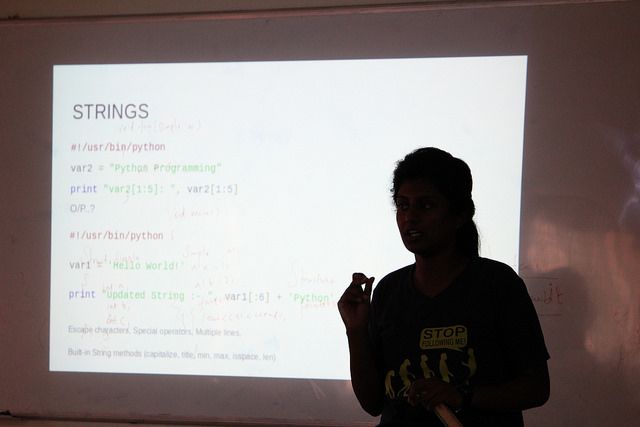
Sharing the work at home
The discussion started with a participant saying it was festival (Navratri) time, thus she was expected to finish her share of daily chores which caused a lot of friction for her to attend this camp. Another woman participant added to it that men aren't expected to do chores thus it would be easier for men to take part in community events and activities.
Women empowerment is usually measured through indicators like access to healthcare, education and employment. Empowered women now have the stress of personal and professional lives upon them. While men do help with the chores, it is women who carry the mental burden. There is an excellent article on how women have to carry

Equal rights for men?
When the word 'feminism' was used quite a few times, a male �participant expressed that feminism feels too forceful against men, rather he would settle for equal rights between men and women.

Feminism is a movement for equal rights, however it has the ugly job of pointing out the mistakes, atrocities, discrimination and oppression of men every second. This is a necessity for the feminism as the current society is the opposite. Women are being systemically oppressed, feminism is aimed at identifying such instances and calling them out for people to see and correct.
Why don't women initiate?
One man remembered how women shy away or refuse to accept responsibilities or take initiatives for college events or festivals. He said he had seen this too many times. A woman replied to this saying that if the platform / place was inviting for women, they would happily participate.
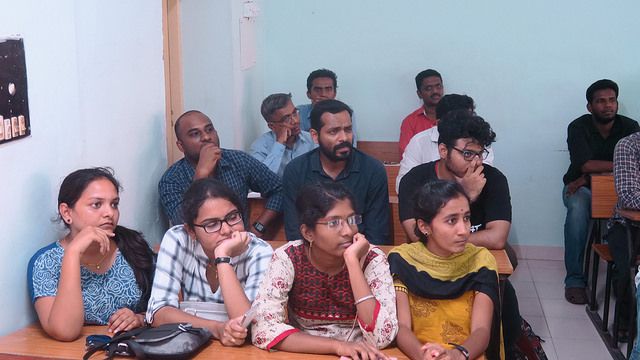
It is not enough to just invite women to participate or take lead. One has to empathize and accommodate different types of people - men, women, student, teachers in a platform / community. This means catering to different types of people in a different way, that is what makes a community inclusive.
Culture of segregation
A volunteer gave the example of the previous day's dumb charades activity at the camp. Participants who failed were asked to point their successors in the game, it was noticed that men chose only men. Over the course of half an hour no woman was chosen to act for the charades. The volunteer wondered if men simply chose their friends or was it the culture of gender segregation in Tamilnadu that prompted such behaviour ?
Gender segregation is when authority figures in classes, family, schools, colleges, public don't allow free communication between men and women.

Individual vs Group identity
One of the participant had a conception that women who take up feminism as a identity tend to lose their individual identity. He felt that women should show themselves as an individual rather than allow themselves to be identified through the feminist movement.
Feminism does not direct participation by losing identity, instead it helps women organize collectively as a means to gain ground for participation which was already dominated by men.
Need for feminism?
Another man said that feminism is the need of the hour. He said that girls are brought up to fit particular roles in the society relating to family, home chores and child rearing. A proactive action to counter such practices is necessary for women empowerment which is what we sees through the feminist movement.

Talking about this at home
A woman said the while we can talk about this here, nothing is going to change until the women in the room voice their individual opinions at home as that is what initiates conversation in the family.
Ice breaking sessions are necessary to crystallize the identity formation and further growth. Women have to fight enough to choose to do what the society deems normal or mainstream for men to do, participation in free culture would definitely require continuous proactive efforts.
Mainstream or not
Another woman said that initiatives like SWIFT tend to isolate women from mainstream activities of the community, thus SWIFT should constantly try to increase women participation in mainstream events instead of having its own events.
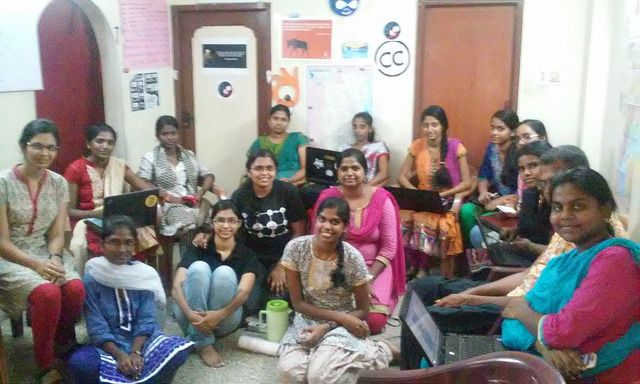
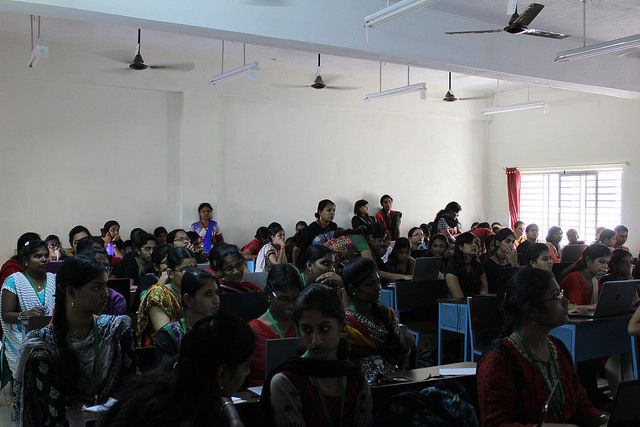
Sensitizing the men
Another volunteer had suggested that SWIFT should hold special sessions for men to understand the perspective and difficulties of women.
Trying to Conclude
People debating about women participation should realize about the gender nature of the society they are living in, and can try to fount their empathetic statement from their immediate vicinity like - family and friends. Only by empathizing from their nearest women relationships would men in a patriarchal society be able to understand their roles and responsibilities never limiting as a workhorse for house hold chores, which most of the civilized history has nurtured us. It is also to be noted that latent labour contributed at several historical situations which have gone by without ever appreciating them.
Nowadays mainstream media creates footprints on documenting past and present contributions - capitalizing the rise of feministic activism. However this portray on one hand help recognize their historical relationship in scientific and societal progression, while on the other hand have been criticized as a capitalizing entity as would any dominating medium would conventionally extract from anything sensational.
It is also rather sad that this article has been written by two men from FSHM instead of women, while timely attempts have been made for call for contribution. To not further delay the publishing, we have attempted writing this. We both do hope that after this write up women contribution would become more enriched and participatory without losing their individual identity. Probably starting with localizing this article itself or else criticizing this from an active women volunteer perspective.
Licensing & Credits
This article is licensed under CC BY ND NC 4.0
All images here are borrowed from Wikimedia Commons, ILUGC's Flickr or FSFTN's Flickr under atleast CC BY 2.0 license.
The article banner image is licensed under MIT, which has been proudly edited from contributions of designer Katerina Limpitsouni.
Thanks to Srravya for reviewing and suggesting corrections to the article.


